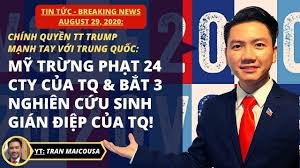
Tran Mai Cousa
Tran Mai Cousa is a subject that, while not widely recognized in mainstream discourse, offers a fascinating lens into the complex interplay between cultural identity, diasporic transformation, and the preservation of heritage across generations. In this article, we will delve into the life, legacy, and broader implications associated with Tran Mai Cousa, exploring historical, social, and cultural dimensions that make it a meaningful topic of discussion in the 21st century.
The Origins and Name Significance
The name “Tran Mai Cousa” itself requires a breakdown to understand its cultural roots. “Tran” is a common Vietnamese surname with deep historical ties to Vietnamese royal and noble families, most notably during the Tran Dynasty which ruled from 1225 to 1400. The surname is often associated with strength, leadership, and strategic intelligence. “Mai” is typically used as a given name in Vietnam and symbolizes the plum blossom, a flower that represents resilience and renewal in Vietnamese and East Asian cultures. “Cousa,” however, appears to diverge from traditional Vietnamese nomenclature and may signify either a transliteration, a family adaptation through immigration, or a multicultural fusion that hints at a diaspora identity. The combination of “Tran,” “Mai,” and “Cousa” points to a hybrid cultural lineage that has likely evolved over time through migration, intermarriage, or the adaptation of personal identity in a new cultural context. This layering of identity through naming is a powerful marker of how individuals and families navigate their past while shaping a future in foreign lands.
Historical and Cultural Context
To understand Tran Mai Cousa in depth, one must situate the name and its bearer(s) within the broader narrative of Vietnamese history and diasporic movement. The 20th century, in particular, saw massive upheavals in Vietnam that led to significant emigration. Events such as the First Indochina War (1946–1954), the Vietnam War (1955–1975), and the Fall of Saigon in 1975 led to waves of Vietnamese refugees resettling across the globe, especially in the United States, France, Canada, and Australia. Families like those associated with Tran Mai Cousa likely faced cultural dislocation, economic hardship, and identity negotiation during their resettlement processes. These individuals often brought with them rich traditions, language, culinary practices, and religious beliefs that they had to balance with the cultural norms of their new homes. Through these trials, they not only preserved their heritage but also contributed to the multicultural fabric of their adopted societies. It is within this context that the Tran Mai Cousa legacy becomes more than just a name—it becomes a representation of cultural endurance, familial resilience, and the transformative power of adaptation.
Diaspora Identity and Personal Narrative
In exploring the personal dimension of Tran Mai Cousa, whether as an individual or a symbolic name, we engage with the universal themes of identity, belonging, and transformation. Those who carry the Tran Mai Cousa name or identify with its legacy likely have stories marked by both struggle and strength. From learning new languages to navigating educational systems, cultural misunderstandings, and even systemic biases, the journey of building a new life while maintaining old values is an inherently complex one. Identity in the Vietnamese diaspora often includes a sense of being “in-between”—not fully Vietnamese in the traditional sense, yet not entirely assimilated into the host culture either. This hybridity, while sometimes confusing, can also be empowering. It allows individuals to craft a new narrative that honors both their past and their future. The name Tran Mai Cousa, therefore, may encapsulate this duality and serve as a reminder of the personal journeys that make up larger diasporic histories.
Socio-Economic Contributions
Families and individuals bearing the Tran Mai Cousa identity have likely made significant socio-economic contributions to their communities. In countries like the United States, for instance, Vietnamese immigrants have built thriving businesses, excelled in academic and professional spheres, and become active participants in civic and cultural life. From opening family-owned restaurants that introduce Vietnamese cuisine to broader audiences, to pursuing careers in engineering, medicine, education, and public service, the Vietnamese diaspora has demonstrated remarkable resilience and ingenuity. The Tran Mai Cousa story could very well include such achievements, highlighting the role of hard work, intergenerational support, and cultural pride in achieving upward mobility. Moreover, the emphasis on education, which is deeply ingrained in Vietnamese culture, often becomes a driving force behind success stories in immigrant families. Children of immigrants frequently outperform national averages in academic settings, a testament to the sacrifices and aspirations of their parents and grandparents.
Art, Language, and Cultural Retention
One of the most poignant aspects of diasporic life is the retention and transmission of culture across generations. In the case of Tran Mai Cousa, this might involve the teaching of the Vietnamese language to children born abroad, participation in cultural festivals such as Tet (Vietnamese New Year), or the preservation of traditional music and art. Artistic expression often becomes a vital channel through which identity is maintained and shared. Second-generation Vietnamese artists, for example, have created works that fuse Eastern and Western aesthetics, producing literature, visual art, music, and film that speak to the complexity of dual heritage. Language, too, plays a critical role. While some younger Vietnamese abroad may not speak fluent Vietnamese, efforts within families and communities to maintain linguistic ties can serve as a lifeline to cultural memory. Tran Mai Cousa, as a name and as a possible narrative figure, may stand for the persistence of these cultural efforts amidst the challenges of assimilation.
Challenges and Resilience
The journey of families associated with Tran Mai Cousa has not been without hardship. Refugees and immigrants often face systemic barriers such as racism, economic disparity, and legal limitations. These challenges are compounded by the psychological toll of displacement, including loss of homeland, identity confusion, and generational divides within families. Yet, it is precisely within these trials that the resilience of individuals and communities becomes evident. Whether through forming tight-knit community organizations, advocating for immigrant rights, or simply maintaining traditions within the home, Vietnamese families have shown remarkable fortitude. The resilience embedded in the Tran Mai Cousa name serves as a powerful counter-narrative to victimhood, portraying instead a story of strength, self-reliance, and forward momentum. This resilience is not just about survival but about building lives of meaning and purpose, often against considerable odds.
Modern Interpretations and Legacy
In today’s globalized and digital world, the meaning and reach of cultural identities like Tran Mai Cousa have evolved. With the rise of social media, digital storytelling, and global communication, diaspora communities are more connected than ever. Younger generations are reclaiming and redefining their identities, often blending tradition with innovation. Tran Mai Cousa, in this context, might serve as an online persona, a cultural project, or even a brand that seeks to educate, inspire, and preserve heritage. It can represent the fusion of Vietnamese tradition with modern sensibilities, appealing to both older generations who seek continuity and younger ones who desire relevance. The legacy of such an identity is no longer confined to geographical borders or even to familial lines; it becomes part of a shared, evolving story of Vietnamese presence and impact in the global community.
Educational and Community Impact
The educational impact of Vietnamese diaspora families is significant. Many who descend from or are inspired by the Tran Mai Cousa lineage may be active in community education, either formally as teachers and professors, or informally as cultural ambassadors. Community centers, Vietnamese language schools, and youth mentorship programs often thrive thanks to the involvement of individuals dedicated to preserving and passing on knowledge. These efforts ensure that younger generations do not lose sight of their roots, even as they become more integrated into the wider society. Furthermore, such educational initiatives often extend beyond the Vietnamese community, fostering cross-cultural understanding and inclusion. By sharing language, stories, food, and traditions, these cultural touchpoints help bridge divides and build inclusive communities. The influence of Tran Mai Cousa thus reaches into classrooms, libraries, art galleries, and public spaces, shaping a more nuanced and respectful multicultural dialogue.
Conclusion: The Enduring Relevance of Tran Mai Cousa
Ultimately, the story and significance of Tran Mai Cousa go beyond a single person or family. It encompasses a broader narrative of migration, adaptation, cultural preservation, and the enduring human spirit. Whether considered as a symbolic name, a cultural archetype, or a real-life individual or family, Tran Mai Cousa invites us to reflect on what it means to belong, to struggle, and to thrive in a world marked by movement and change. The name represents not only a connection to Vietnamese heritage but also a dynamic and evolving identity that continues to influence and inspire. In celebrating Tran Mai Cousa, we also honor the countless untold stories that make up the rich mosaic of the Vietnamese diaspora, and by extension, the larger immigrant experience. Through its complexities and contributions, Tran Mai Cousa stands as a testament to the power of culture, memory, and community in shaping both personal and collective histories





